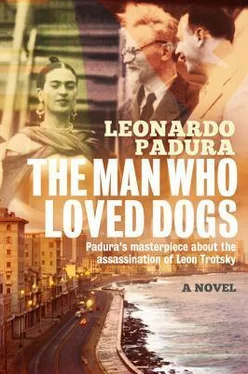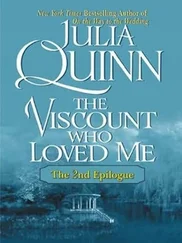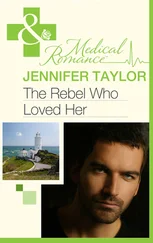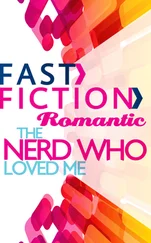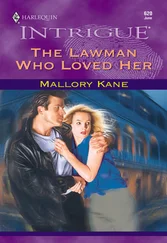As it had been her decision not to go to the hospital, a neighboring nurse and our friend Frank had taken over the task of providing her with intravenous fluids and the dose of morphine that kept her in a startling lethargy. Upon seeing that reaction, Frank warned me that this was the denouement and recommended that I give the patient only those foods that she asked for, not insisting on the intravenous fluids and, as long as she wasn’t complaining of pain, stopping all drugs to thus give her some final days of intelligence. Then, as if her life had returned to normal, an Ana with various broken bones and very open eyes became interested again in the world around her. With the television and radio on, she fixed her attention in an obsessive way on the path of the hurricane that had initiated its deathly dance devastating the island of Grenada, where it had left more than twenty dead. On many occasions throughout those days, my wife lectured me on the hurricane’s characteristics, one of the strongest in meteorological history, and attributed its elevated powers to the climate change the planet was undergoing, a mutation of nature that could do away with the human species if the necessary measures were not taken, she told me, completely convinced. That my dying wife was thinking of everyone else’s future only added to the pain I was already suffering.
While the storm neared Jamaica with the obvious intention of later penetrating eastern Cuba, Ana developed a sort of meteorological excitement capable of keeping her on constant alert, a tension she escaped only when sleep conquered her for two or three hours. All of her expectations were related to Ivan’s doings, with the number of dead it left in its path — one in Trinidad, five in Venezuela, another in Colombia, five more in Dominica, fifteen in Jamaica, she added, counting on her crooked fingers — and, above all, the calculations of what it would destroy if it penetrated Cuba through any of the points marked as possible trajectories deduced by the specialists. Ana experienced a kind of cosmic communication at the point of the symbiotic confluence of two bodies that know they are destined to consume themselves in the span of a few days, and I began to speculate whether the illness and the drugs had not made her crazy. I also thought that if the hurricane didn’t come through soon and Ana didn’t calm down, I would be the one who ended up going crazy.
The most critical period — for Ana and, logically, for each of the island’s inhabitants — occurred when Ivan, with sustained winds of approximately 150 miles per hour, began to pass over the seas to the south of Cuba. The hurricane was moving with a lazy arrogance, as if it were perversely choosing the point at which it would inevitably turn north and break the country in two, leaving an enormous wake of ruins and death. With bated breath and her senses clinging to the radio and the color television that a neighbor had lent us, a Bible near one hand and our dog Truco beneath the other, Ana cried, laughed, cursed, and prayed with a strength that was not her own. For more than forty-eight hours she remained in that state, watching Ivan’s careful approach as if her thoughts and prayers were indispensable to keeping the hurricane as far away as possible from the island, blocking it in that almost incredible westward path from which it couldn’t resolve to deviate to the north and flatten the country, as all historic, atmospheric, and planetary logic predicted.
The night of September 12, when information from satellites and radars and the unanimous opinion of meteorologists around the world were certain that Ivan would chart a course for the north and that with its battering gusts, gigantic waves, and rain squalls, it would rejoice in the final destruction of Havana, Ana asked me to remove from the wall of our room the dark, corroded wooden cross that twenty-seven years before the sea had given me — the driftwood cross — and place it at the foot of the bed. Then she begged me to make her a very hot hot chocolate and some toast with butter. If what was supposed to happen happened, that would be her last supper, because the battered ceiling of our apartment would not withstand the force of the hurricane, and she, it goes without saying, refused to move from there. After drinking the hot chocolate and nibbling a piece of toast, Ana asked me to lay the driftwood cross next to her and began to pray with her eyes fixed on the ceiling and on the wooden beams guaranteeing its balance and, perhaps, with her imagination devoted to playing out the images of the apocalypse lying in wait for the city.
The morning of September 14, the meteorologists announced a miracle: Ivan had turned toward the north at last, but it had done so so far to the west of the designated zone that it barely brushed the westernmost point of the island without causing any major damage. Apparently the hurricane had felt remorse for the many calamities piling up, and had steered away from us, convinced that its passing through our country would have been an excess of bad fate. Worn out by so much praying, with her stomach ravaged by lack of food, but satisfied by what she considered to be a personal victory, Ana fell asleep after hearing confirmation of that cosmic whim, and in the grimace that had become habitual on her lips there was something very much like a smile. Ana’s breathing, strained for so many days, was relaxed again and, along with her fingers caressing Truco’s wiry hair, was the only sign in the next two days that she was still alive.
On September 16, practically at nightfall, while the hurricane started to disintegrate on U.S. soil and to lose the already diminished force of its winds, Ana stopped caressing our dog and, a few minutes later, stopped breathing. She was at last resting, I’d like to think, in eternal peace.
In due time you will understand why this story, which is not the story of my life (although it also is), begins as it does. And although you still don’t know who I am or have any idea what I’m going to tell you, perhaps you will have understood something: Ana was a very important person to me. So much so that, to a large degree, it is because of her that this story exists — in black and white, I mean.
Ana crossed my path at one of those all so frequent times during which I was teetering on the edge of a precipice. The glorious Soviet Union had started its death rattle, and the lightning bolts of the crisis that would devastate the whole country in the 1990s were beginning to come down on us. It was predictable that one of the first consequences of the national debacle had been the closing, due to a lack of paper, ink, and electricity, of the veterinary medicine magazine where for ages I had worked as a proofreader. Just like dozens of press workers, from typesetters to editors, I had ended up in an artisans’ workshop where we were supposed to devote ourselves, for an indefinite period of time, to making macramé crafts and polished seed decorations that, everyone knew, no one would be able to or dare to buy. Three days into this new and useless destiny, without even having the decency to quit, I fled from that honeycomb of enraged and frustrated bees and, thanks to my friends the veterinarians whose texts I have reviewed so many times or even rewritten, I was able to start working shortly after as a sort of ubiquitous helper in the likewise poverty-stricken clinic of the University of Havana’s School of Veterinary Medicine.
Sometimes I am so overly suspicious that I come to wonder if that whole series of global, national, and personal decisions (they were even talking about “the end of history,” just when we had begun to have an idea about what the history of the twentieth century was) had as its only objective that I be the one who received, at the end of a rainy afternoon, the desperate and dripping young woman who, carrying a shaggy poodle in her arms, appeared at the clinic and begged me to save her dog, which was afflicted with an intestinal blockage. Since it was after four o’clock and the doctors had already left, I explained to the girl (she and the dog were trembling from the cold and, observing them, I felt my voice falter) that we couldn’t do anything. Then I saw her break into tears: her dog was dying, she said to me; the two veterinarians who had seen him didn’t have anesthesia to operate on him; and since there weren’t any buses in the city, she had come walking in the rain with her dog in her arms, and I had to do something, for the love of God. Something? I still ask myself how it’s possible that I dared to, or if in reality I was already wanting to dare to; but after explaining to the girl that I was not a veterinarian and asking her to write her petition on a piece of paper and sign it, thus freeing me of all responsibility, the dying Tato became my first surgical patient. If the God invoked by the girl had ever decided to protect a dog, it had to be that afternoon, since the operation — about which I had read so much and seen carried out more than once — was a success in practice.
Читать дальше
